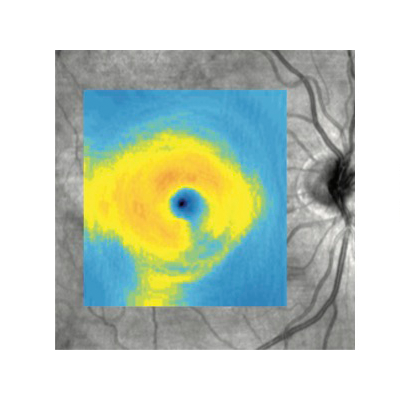
New research, which appears in the journal Proceedings of the Royal Society B, sheds light on how the damage in the brain caused by a stroke can lead to permanent vision impairment for approximately 265,000 Americans each year. The findings could provide researchers with a blueprint to better identify which areas of vision are recoverable, facilitating the development of more effective interventions to encourage vision recovery.
"This study breaks new ground by describing the cascade of processes that occur after a stroke in the visual center of the brain and how this ultimately leads to changes in the retina," said senior study author Brad Mahon, an associate professor at Carnegie Mellon University and the University of Rochester. "By more precisely understanding which connections between the eye and brain remain intact after a stroke, we can begin to explore therapies that encourage neuroplasticity with the ultimate goal of restoring more vision in more patients."
Data from this study is openly available in KiltHub, CMU's comprehensive institutional repository hosted within figshare. In the future, it will be incorporated into The Open Brain Project, a new, digital platform for exploration of the human brain. Ana Van Gulick, research liaison for psychology and brain sciences and program director for Open Science at Carnegie Mellon University Libraries, is a key contributor to this joint effort of CMU and the University of Rochester.
"The field of neuroscience is currently undergoing a dramatic shift toward open science that will encourage new collaborations and methods of research inspired by data science," Van Gulick said. "A cornerstone of this is providing open access to datasets in a standard format so that they can be aggregated and reused to extend scientific discovery. The data currently available in KiltHub and the larger collection that will later be discoverable through The Open Brain Project will provide a rich open access resource for education and research in neuroscience."
Read more about this study at CMU News.
